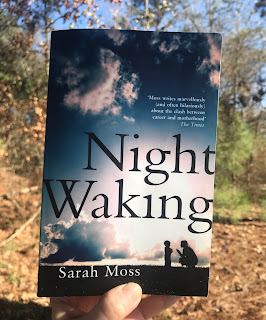I was hesitant as I first began to read, mostly because I did not feel like I identified with the characters. Maybe that is partly because the main characters are Muslim, and Islam is so far from what I know. But more broadly than that, any intensely held religious faith makes me uncomfortable
As the story evolved, it started to seem more like a Sally Rooney relationship book (not that there is a single thing wrong with those). I mentioned this to Sam at that point, and he disagreed pretty strongly. And now that I've finished the book, I can see that he was right. Because wow. This book became its own thing. And what an ending!
This story is about a British family of Pakistani descent: the older sister Isma, and 19-year-old twins Aneeka and Parvaiz. They'd been orphaned seven years previously, and now that the twins were no longer children, Isma can finally pursue the education that she had put off for so long. Soon after arriving in Massachusetts to study, Isma runs across Eamonn Lone, who she actually already knows because of his politician father, though Eamonn does not know her. They form a friendship of sorts that is truncated when Eamonn returns to London. There, he hits it off with Isma's sister Aneeka . . . until it is revealed that Aneeka's twin brother Parvaiz left England to join ISIS, making Aneeka part of a family that the son of the new home secretary should not be associating with. And it was just about at this point where the book really took off.
One of the best things about this book is how hard it makes you think. Between the character development and the situation (encompassing huge themes of relationships, politics, religion), there are few clear villains and no pure heroes. I'm glad Shamsie did not attempt to make her story didactic; that would have been a huge turn-off. She is not trying to point to any of the main characters and say, Here's your bad guy, and here's who you should root for. Instead, she creates complicated, real characters, and those are always the best kind.









































